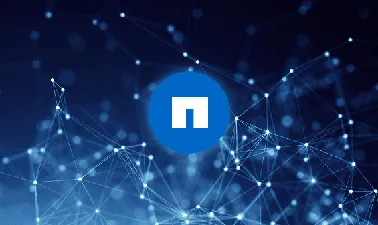
Cloud Volumes ONTAP Deployment and Management for Azure 
This course teaches learners how to use OnCommand Cloud Manager to deploy and manage NetApp Cloud Volumes ONTAP for Azure. Learners will gain the skills to configure automatic data tiering, replicate data between clouds, and manage volumes. By the end of the course, learners will have a comprehensive understanding of Cloud Volumes ONTAP for Azure. ▼
ADVERTISEMENT
Course Feature
![]() Cost:
Cost:
Free
![]() Provider:
Provider:
Edx
![]() Certificate:
Certificate:
No Information
![]() Language:
Language:
English
![]() Start Date:
Start Date:
31st Jan, 2020
Course Overview
❗The content presented here is sourced directly from Edx platform. For comprehensive course details, including enrollment information, simply click on the 'Go to class' link on our website.
Updated in [March 06th, 2023]
This course provides an overview of Cloud Volumes ONTAP Deployment and Management for Azure. Participants will learn how to use OnCommand Cloud Manager to deploy and manage NetApp Cloud Volumes ONTAP for Azure, which includes volume management. Additionally, participants will learn how to configure automatic data tiering and replicate data between clouds, as well as how to configure Cloud Manager's role-based access control (RBAC) to configure administrators and tenants.
To complete the hands-on portion of the course, participants will need to create their own Azure account. Participants are responsible for any charges incurred for the Azure resources used in the course. Familiarity with Azure and Cloud Volumes ONTAP is recommended.
[Applications]
After completing this course, participants will be able to deploy and manage NetApp Cloud Volumes ONTAP for Azure, configure automatic data tiering, replicate data between clouds, and configure Cloud Manager's role-based access control (RBAC). Participants should be able to apply this knowledge to their own Azure accounts to configure and manage Cloud Volumes ONTAP for their own applications.
[Career Paths]
1. Cloud Solutions Architect: Cloud Solutions Architects are responsible for designing, developing, and managing cloud-based solutions for their organization. They must have a deep understanding of cloud technologies, such as Azure, and be able to develop and implement cloud-based solutions that meet the needs of their organization. As cloud technologies continue to evolve, Cloud Solutions Architects must stay up-to-date on the latest trends and technologies in order to ensure their organization is taking advantage of the most efficient and cost-effective solutions.
2. Cloud Infrastructure Engineer: Cloud Infrastructure Engineers are responsible for designing, deploying, and managing cloud-based infrastructure. They must have a deep understanding of cloud technologies, such as Azure, and be able to develop and implement cloud-based solutions that meet the needs of their organization. As cloud technologies continue to evolve, Cloud Infrastructure Engineers must stay up-to-date on the latest trends and technologies in order to ensure their organization is taking advantage of the most efficient and cost-effective solutions.
3. Cloud Security Engineer: Cloud Security Engineers are responsible for designing, deploying, and managing cloud-based security solutions. They must have a deep understanding of cloud technologies, such as Azure, and be able to develop and implement cloud-based security solutions that meet the needs of their organization. As cloud technologies continue to evolve, Cloud Security Engineers must stay up-to-date on the latest trends and technologies in order to ensure their organization is taking advantage of the most secure and cost-effective solutions.
4. Cloud Data Engineer: Cloud Data Engineers are responsible for designing, deploying, and managing cloud-based data solutions. They must have a deep understanding of cloud technologies, such as Azure, and be able to develop and implement cloud-based data solutions that meet the needs of their organization. As cloud technologies continue to evolve, Cloud Data Engineers must stay up-to-date on the latest trends and technologies in order to ensure their organization is taking advantage of the most efficient and cost-effective data solutions.
[Education Paths]
1. Bachelor's Degree in Computer Science: A Bachelor's Degree in Computer Science is a great way to gain the skills and knowledge necessary to deploy and manage NetApp Cloud Volumes ONTAP for Azure. This degree will provide students with a comprehensive understanding of computer science fundamentals, such as programming, data structures, algorithms, operating systems, and computer architecture. Additionally, students will learn about cloud computing, networking, and security. As cloud computing continues to grow in popularity, a Bachelor's Degree in Computer Science will provide students with the skills and knowledge to stay ahead of the curve.
2. Master's Degree in Cloud Computing: A Master's Degree in Cloud Computing is a great way to gain the skills and knowledge necessary to deploy and manage NetApp Cloud Volumes ONTAP for Azure. This degree will provide students with a comprehensive understanding of cloud computing fundamentals, such as cloud architecture, cloud security, cloud storage, and cloud networking. Additionally, students will learn about cloud computing platforms, such as Azure, AWS, and Google Cloud Platform. As cloud computing continues to grow in popularity, a Master's Degree in Cloud Computing will provide students with the skills and knowledge to stay ahead of the curve.
3. Certificate in Cloud Computing: A Certificate in Cloud Computing is a great way to gain the skills and knowledge necessary to deploy and manage NetApp Cloud Volumes ONTAP for Azure. This certificate will provide students with a comprehensive understanding of cloud computing fundamentals, such as cloud architecture, cloud security, cloud storage, and cloud networking. Additionally, students will learn about cloud computing platforms, such as Azure, AWS, and Google Cloud Platform. As cloud computing continues to grow in popularity, a Certificate in Cloud Computing will provide students with the skills and knowledge to stay ahead of the curve.
4. Master's Degree in Data Science: A Master's Degree in Data Science is a great way to gain the skills and knowledge necessary to deploy and manage NetApp Cloud Volumes ONTAP for Azure. This degree will provide students with a comprehensive understanding of data science fundamentals, such as data mining, machine learning, and data visualization. Additionally, students will learn about cloud computing platforms, such as Azure, AWS, and Google Cloud Platform. As data science and cloud computing continue to grow in popularity, a Master's Degree in Data Science will provide students with the skills and knowledge to stay ahead of the curve.
Course Provider

Provider Edx's Stats at AZClass
Cloud Volumes ONTAP Deployment and Management for Azure teaches learners how to use OnCommand Cloud Manager to deploy and manage NetApp Cloud Volume ONTAP for Azure. Azure Volume ONTAP Deployment and Management is a course designed to help learners understand how to use OnCommand Cloud Manager to deploy and manage NetApp Azure Cloud Volume ONTAP. This course covers topics such as volume management, automatic data tiering, data replication between clouds, and configuring role-based access controls for administrators and tenants. Learners will understand how to use Cloud Manager to configure and manage Azure Cloud Volumes ONTAP.
Discussion and Reviews
0.0 (Based on 0 reviews)
Explore Similar Online Courses

Cryptographic Algorithms in Java

JavaScript Programming: Learn by Making a Mobile Game

Python for Informatics: Exploring Information

Social Network Analysis

Introduction to Systematic Review and Meta-Analysis

The Analytics Edge

DCO042 - Python For Informatics

Causal Diagrams: Draw Your Assumptions Before Your Conclusions

Whole genome sequencing of bacterial genomes - tools and applications

Microsoft Azure Online Data Engineering Training

Cloud Developer using Microsoft Azure


Start your review of Cloud Volumes ONTAP Deployment and Management for Azure